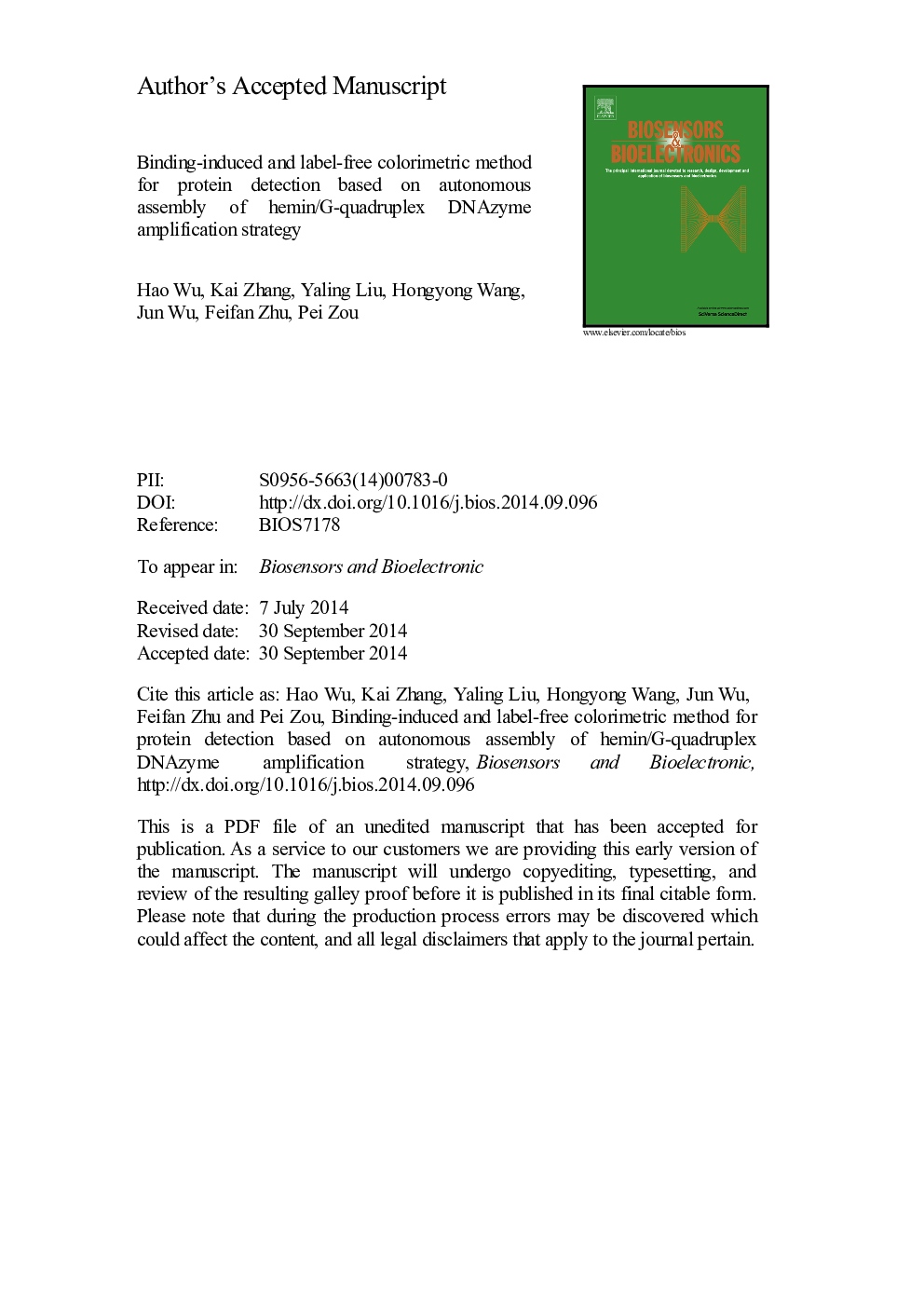| Article ID | Journal | Published Year | Pages | File Type |
|---|---|---|---|---|
| 7233145 | Biosensors and Bioelectronics | 2015 | 25 Pages |
Abstract
In this work, a new binding-induced and label-free colorimetric method for protein detection has been developed on the basis of an autonomous assembly of hemin/G-quadruplex DNAzyme amplification strategy. The system consists of two proximity probes carrying two aptamer sequences as recognition elements for target, and two hairpin structures include three-fourths and one-fourth of the G-quadruplex sequences in inactive configuration as functional elements. In the presence of target protein, two proximity probes bind to the protein simultaneously, forming a stable DNA-protein complex. Then the complex triggers an autonomous cross-opening of the two functional hairpin structures, leading to the formation of numerous hemin/G-quadruplex DNAzymes. The resulting DNAzymes catalyze the oxidation of colorless 2,2â²-azino-bis(3-ethylbenzothiazoline-6-sulfonic acid) (ABTS2â) to the green-colored ABTS
- â with the presence of H2O2, thus providing the amplified colorimetric detection of target. Using human α-thrombin as the protein target, this binding-induced DNAzyme amplification colorimetric method affords high sensitivity with a detection limit of 1.9 pM. Furthermore, this method might be further extended to sensitive detection of other proteins by simply replacing recognition elements of proximity probes.
- â with the presence of H2O2, thus providing the amplified colorimetric detection of target. Using human α-thrombin as the protein target, this binding-induced DNAzyme amplification colorimetric method affords high sensitivity with a detection limit of 1.9 pM. Furthermore, this method might be further extended to sensitive detection of other proteins by simply replacing recognition elements of proximity probes.
Keywords
Related Topics
Physical Sciences and Engineering
Chemistry
Analytical Chemistry
Authors
Hao Wu, Kai Zhang, Yaling Liu, Hongyong Wang, Jun Wu, Feifan Zhu, Pei Zou,
